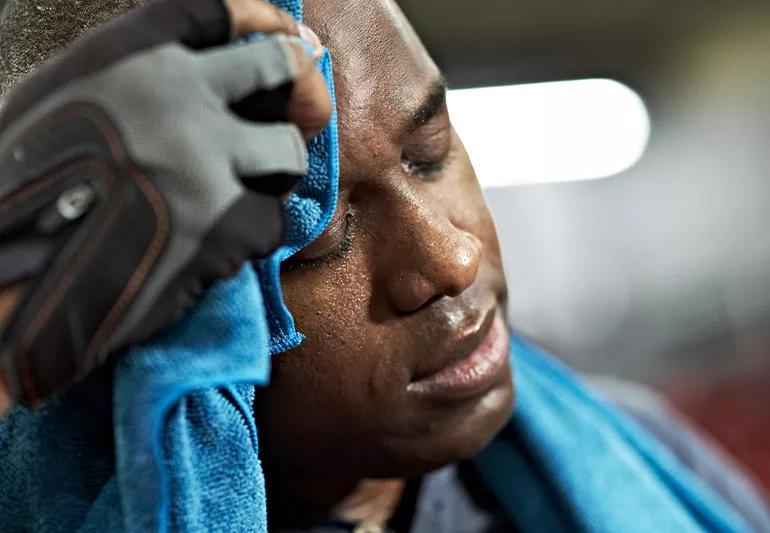A pulmonary medicine specialist explains what's best

Image content: This image is available to view online.
View image online (https://assets.clevelandclinic.org/transform/3e1c247f-1032-476a-bdaa-5623ee1ba81a/breatheNoseMouth-470333789-770x533-1_jpg)
man breathing through mouth after exercising
A: You’ve probably been told in certain situations to “breathe in through your nose and out through your mouth” — especially during exercise or meditation or to relax. But ever wondered why?
Advertisement
Cleveland Clinic is a non-profit academic medical center. Advertising on our site helps support our mission. We do not endorse non-Cleveland Clinic products or services. Policy
The important part of the answer is really the first part — breathing in — and what happens along the way.
Humans are naturally designed to breathe through our noses from birth. It’s the way we’ve evolved, and there are reasons we default to nasal breathing.
Inhaling through your nose offers many more benefits to your body than taking in air through your mouth.
When we’re newborns, we breathe in and out through our noses almost all the time. This is related to how our throats are configured, so we can breathe and suckle at the same time without choking. It’s a survival mechanism.
Our noses are also designed to process the air that comes in very differently that our mouths can. These are intentional and functional parts of our body’s design to keep us safe and healthy.
Here are all the good things your nose does that your mouth doesn’t when you breathe in:
Advertisement
Just something to think about next time you’re out and about on a run.
The only time you really need to temporarily resist natural nose breathing and engage in mouth-breathing is when you’re doing strenuous exercise and need more air to your lungs more quickly, or when your nasal passage is blocked due to congestion, allergies or a cold. But remember, this does however cancel most the benefits that breathing through your nose provides.
— Pulmonary medicine specialist Jason Turowski, MD
Advertisement

Delivered every Tuesday!
Sign up for our Health Essentials emails for expert guidance on nutrition, fitness, sleep, skin care and more
It's a letter about the news!
Learn more about our editorial process.
Advertisement
This style of breathwork can invigorate you and help you focus
Most recommended precautions center around minimizing bruising or swelling
Even one drink can have an impact on your cognitive function leading to slurred speech, blurred vision and impaired memory
Understand who may (and may not) benefit
Lorem ipsum dolor sit amet. Et odio Quis vel ipsam omnis eum alias deleniti et placeat impedit non voluptas galisum hic autem enim et cupiditate aliquid. Est beatae quidem non facilis autem ut commodi nisi aut tempore rerum et dolores voluptatem cum enim optio id sapiente quasi. Ad laboriosam officiis 33 cupiditate sequi ea voluptatum consectetur qui necessitatibus voluptate et quasi doloremque et facere explicabo quo explicabo officia
Seeking help through therapy can be an important step in improving your quality of life when you have UC
Type 2 diabetes isn’t inevitable with these dietary changes
Applying a hot or cold compress can help with pain
Pump up your iron intake with foods like tuna, tofu and turkey